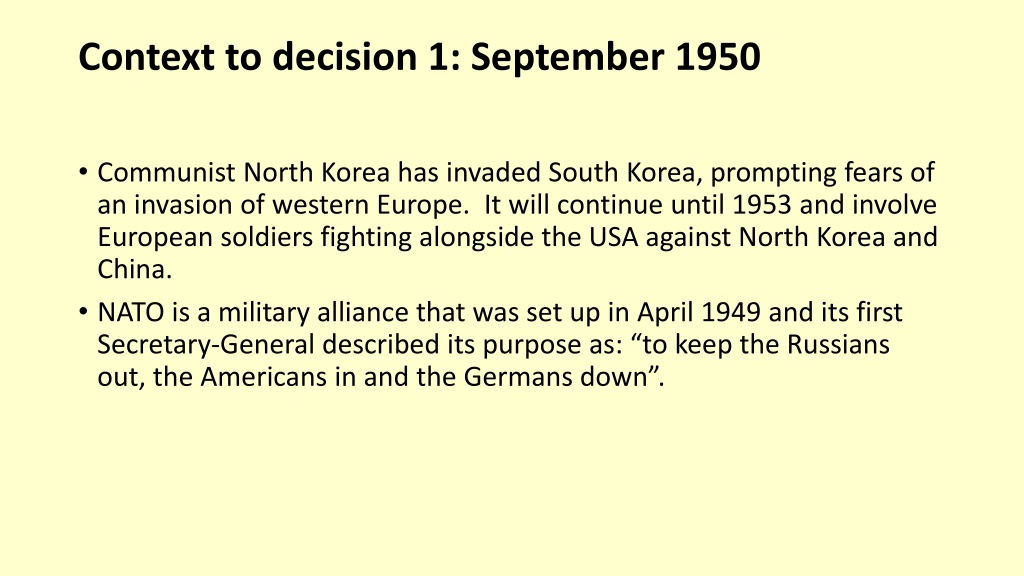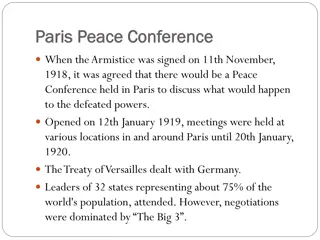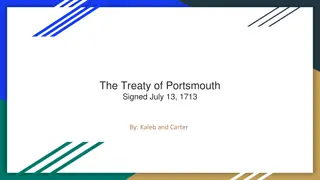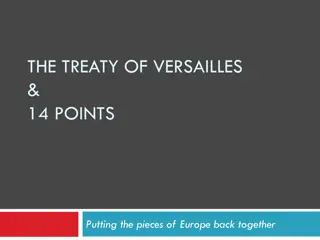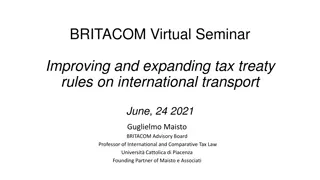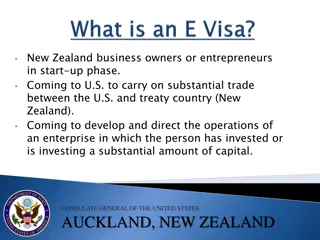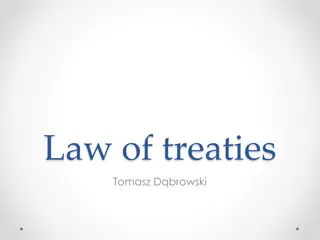European Defence Treaty Negotiations in the 1950s
In the 1950s, the proposal for a European Defence Treaty faced challenges and differing opinions among European countries and the USA. The Korean War, fears of Soviet threat, and the role of NATO influenced discussions. The evolution of negotiations, including debates on West German rearmament and the French National Assembly's rejection in 1954, reflected the complex geopolitical dynamics of the time.
Download Presentation

Please find below an Image/Link to download the presentation.
The content on the website is provided AS IS for your information and personal use only. It may not be sold, licensed, or shared on other websites without obtaining consent from the author. Download presentation by click this link. If you encounter any issues during the download, it is possible that the publisher has removed the file from their server.
E N D
Presentation Transcript
Context to decision 1: September 1950 Communist North Korea has invaded South Korea, prompting fears of an invasion of western Europe. It will continue until 1953 and involve European soldiers fighting alongside the USA against North Korea and China. NATO is a military alliance that was set up in April 1949 and its first Secretary-General described its purpose as: to keep the Russians out, the Americans in and the Germans down .
Context to decision 2: October 1950 The French government is totally opposed to the US proposal made in September. The Italian government is prepared to back and develop the alternative plans that the French have, although they believe the US must be involved. The Benelux countries are nervous about the US proposal, but think that continued US presence in Europe is vital for defence. The British government is prepared to discuss the matter further; agreeing with the USA that the USSR is the major threat and that continental European countries need to contribute more to their own defence. Britain also believes that continued US involvement in European defence is vital and must not be jeopardised.
Context to decision 3: May 1952 The USA and Britain are not totally happy with the proposal for a European Defence Treaty in October 1950, they prefer the idea of rearming West Germany as part of NATO. Neither country sees the necessity for supranational organisational structures to organise European defence that are separate from NATO. However, both countries are willing to enter negotiations to discuss the idea further. Other European countries are also happy to enter negotiations.
Context to decision 4: December 1953 In March 1953 the West German Bundestag ratified the EDC Treaty, despite significant public opinion against German rearmament. The Benelux countries soon also ratified. The Italian government decided to wait to see what would happen in France. The USA is impatient for ratifications to happen as it sees ways to reduce its defence expenditure in Europe. The French government has still not been able to ratify. Britain is waiting to see what the French will do. The Korean War is over and Stalin has died, the risk of imminent invasion seems to be over.
Context to decision 5: autumn 1954 There is widespread frustration from the US and the other European countries involved about the French position and the continued delay in ratification of the Treaty. The Treaty does not go before the French National Assembly for a vote until 30th August 1954. The Assembly ignores US threats and decisively refuses to ratify the Treaty. Mend s-France says the plan has too much supranational integration and not enough participation by the British. The German Chancellor Adenauer privately blames poor leadership on behalf of Mend s-France. After all, he has overcome negative public opinion in Germany. The Korean War is over, Stalin has died and NATO has become fully established, and the US is still threatening to reduce its support if Europe does not do something.
The result The Eden proposals were swiftly adopted and ratified by all national legislative assemblies. The French National Assembly only passed the new Treaty by 27 votes. There was still much concern in France, but enough Assembly members realised that two rejections could not happen. They could not risk the US reducing support to France. The West European Union (WEU) came into existence in May 1955 and West Germany joined NATO at the same time. Although there was some opposition within West Germany, the new Bundeswehr was established. It was set up with careful controls to make sure that it stayed a citizens army answerable to the German Bundestag. The WEU only involved troops on the European continent and important military decisions were made through NATO. The US found that it could not reduce its troop commitments very far. The WEU existed until 2011.
